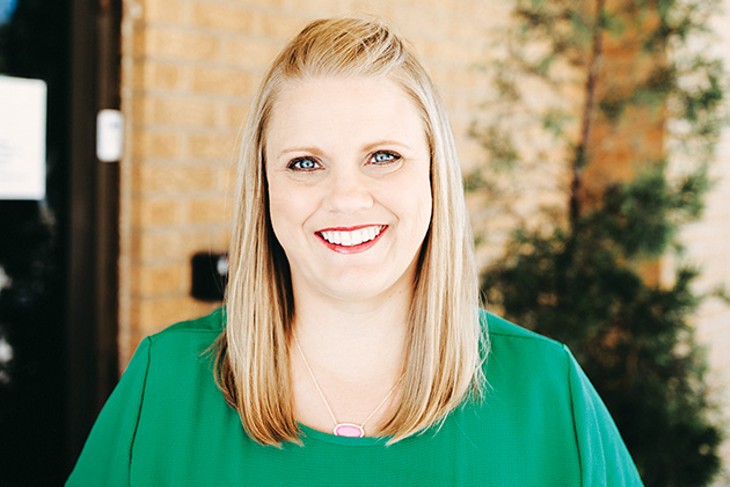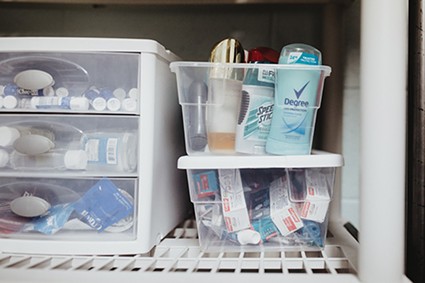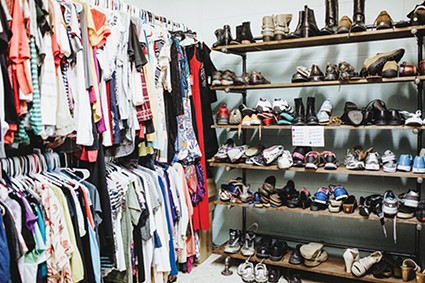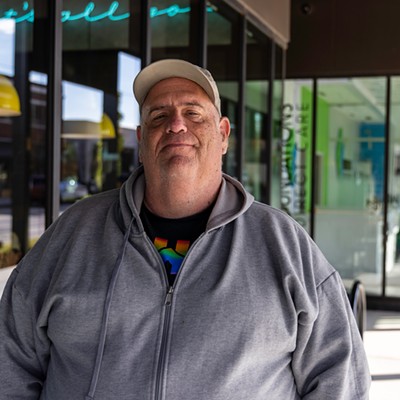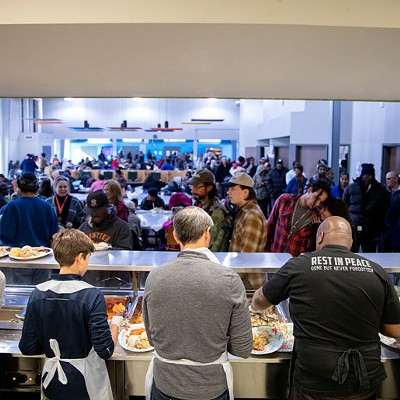Sisu Youth Services has seen the number of drop-in clients nearly double since the closure of another nonprofit organization. Sisu has offered resources for individuals since 2010 and last year started offering overnight shelter every night.
“It’s with a heavy heart that Be the Change announces the closing of our youth shelter. We have encountered financial issues that made this decision necessary,” reads a May 10 post on Be the Change’s Facebook page. “Please consider donating to Sisu Youth Services, as they are now dealing with an unexpected increase of youth needing their services.”
With the recent closure of Be the Change, Sisu Youth has become the only overnight emergency shelter serving unaccompanied youth in Oklahoma City.
“We are a no-barrier shelter. There is another shelter, Pivot, that serves youth. There are some differences in the services that we provide,” said Jamie Caves, Sisu assistant director. “Pivot focuses on [Office of Juvenile Affairs] and [Department of Human Services] youth, so occasionally, they might have an opening that they might serve a street homeless youth, but that is not typical. Also, they only serve youth up to 18. … They’re serving minors, and we’re serving more transition-age youth.”
Sisu provides shelter for 15- to 22-year-olds and drop-in services for 15- to 24-year-olds. The shelter’s overnight capacity is 16, but it was temporarily increased to 19. Despite the increase, it has been at capacity for weeks.
“We don’t have a capacity for drop-in services,” Caves said, “so the youth that aren’t able to access the shelter are still able to come and get dinner and some resource connection and go to the clothing closet and the food pantry, take a shower and do laundry, those sorts of things.”
While Sisu staff continues to work hard to provide resources to youth seeking help, Caves said its case managers’ loads have doubled, making it more difficult to provide the same level of care.
“Be the Change closing has had a pretty direct and significant impact on Sisu. For example — I know the numbers from [May 8] off the top of my head — we had an 82 percent increase in our drop-in clients,” Caves said. “Obviously, it’s putting stress on the staff at Sisu. We’re doing the best we can, but that significant of an increase overnight makes it difficult to provide a level of care and support for the youth that we would really like to as far as resource connection goes. They’re safe, but we like to help them work on overcoming barriers, recovering documents, getting into mental health appointments, counseling, support groups and any medical appointments that they may need to go to as well as just working on getting back in school and permanency planning to help them get to a place where they can be stably housed.”
According to a study on homelessness by Oklahoma City Planning Department, unaccompanied youth made up 4 percent of the total OKC homeless population in 2018, though the methods to find that number do “not accurately capture the number of youth experiencing homelessness, as they tend to make greater effort not to be located.” The report also states unaccompanied homeless youth are exposed to higher rates of violence, involvement in illegal activities, sexual assault and physical illness. They are also more likely to experience severe anxiety and depression.
“It’s different than adults because they’re not really getting back on their feet,” Caves said. “Our average age is 18, so they haven’t really ever been on their feet alone. They haven’t had to pay bills or cook dinner; these things are new skills for a lot of them.”
About 40 percent of Sisu’s youth identify as LGBTQ+, with family rejection being the main reason for their homelessness. Additionally, 40 percent have been in or aged out of DHS custody foster care, and roughly 25 percent have severe mental health diagnoses.
“Almost all have experienced some sort of trauma,” Caves said. “Some of them grew up in great, wonderful homes; they just maybe weren’t receiving the care they needed for a mental health condition or maybe they came out to their parents or maybe they ended up with an addiction issue, and so they ended up in this situation where they didn’t have any place else to turn and they’re in need of support. More likely, they are in a situation where they didn’t have the support at home … and maybe just didn’t get the experience and the tools that they need in order to succeed on their own.”
Because the organization deals with youth who might not have support systems, Caves said there is a lot of teaching and mentoring that has to be done to help prevent them from being chronically homeless. Fortunately, Caves said they have been getting additional help from other organizations.
“The City of Oklahoma City does a pretty good job with our coordinated case management, so we had a meeting yesterday,” she said. “The Homeless Alliance has been a huge blessing, working with us and supporting us. They’re actually coming out … to help process our kids faster, so that we can get a few housed and open up a few beds, so they’re working with us in a great capacity. Catholic Charities has reached out and offered some support with item donation. Of course, we always work closely with Pivot and referrals.”
How to help
Sisu currently needs more volunteers, money and resources to provide homeless youth. While the organization has supplies, it goes through them at a much faster rate with such an increase in drop-in clients, making it harder to keep up with demand.Those interested in volunteering can apply at the organization’s website. A Sisu official will follow up with information needed to do a background check and go through training.
“We do run 95 percent volunteer, so volunteering is a huge need,” Caves said. “That’s a great way to connect directly with the youth and be a positive role model and provide some mentorship and support for them. Additionally, we need money. It’s the most important item that we need right now. If we could increase our staff hours, if we could increase our care coordination, then we could provide better support for our youth. So that’s absolutely the number one priority. Additionally, we need drinks and we’re completely out of men’s underwear, so things like that; things like laundry detergent and drinks. We try to send the kids out with a sack lunch every day, so food that they can take with them to eat during the day.”
Monetary donations can be made online or in person. Clothing, food or cleaning supplies can be dropped off in person 4-7 p.m. Sundays, Mondays and Wednesdays and 11 a.m.-2 p.m. Saturdays at 3131 N. Pennsylvania Ave.
Visit sisuyouth.org.

